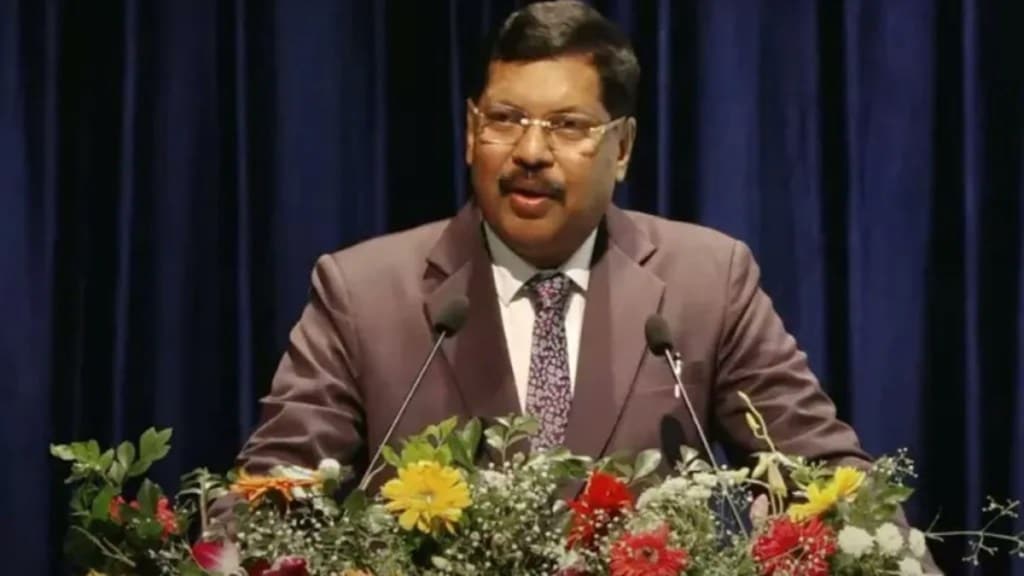By PV Dinesh
Justice Bhushan Ramkrishna Gavai is set to become the 52nd Chief Justice of India on May 14, the second CJI in Indian history from the Dalit community. Unlike Justice KG Balakrishnan, who was the first, Justice Gavai is vocal about his underprivileged background — a reminder to the Dalit community about the possibilities that exist within the Indian society to reach the top, and a call for the society at large to introspect on the minuscule representation of SC/STs in the judiciary.
Born on November 24, 1960, in Amravati, Maharashtra, Justice Gavai began his legal career in 1985. He practised at the Nagpur Bench of the Bombay High Court, a place known for both Ambedkarism and its stark opposition. He has practised in various capacities – as a private lawyer, Government Pleader and Public Prosecutor. He was elevated to the Bombay High Court in 2003. After serving a long 16-year tenure as High Court Judge, he was appointed to the Supreme Court of India in 2019.
A judge deals with thousands of cases, involving innumerable statutes across different branches of law. Hair-splitting legal propositions are a feast for lawyers and students of law, but in the end, a judge is remembered by for judgements he delivers on socio-political issues. The independence and social philosophy of judges are truly tested when they deal with cases of public importance. Justice Gavai has several such judgements to his credit. He was part of Constitution Bench that struck down the celebrated electoral scheme. While granting bail to Teesta Setalvad, he called Gujarat High Court’s order “perverse”. The bench headed by him, while granting bail to former Deputy Chief Minister of Delhi Manish Sisodia, reiterated that even in money laundering cases the principle “bail is the rule, jail is the exception” prevails. Similarly, Justice Gavai stayed the conviction of Rahul Gandhi in a criminal defamation case, which restored his membership in Parliament.
In the case of introducing horizontal reservation in SC/STs, Justice Gavai advocated for introducing a ‘creamy layer’ in SC/ST. His reasoning was that the children of IAS/IPS officers who belong to the SC/ST community should not be equated with the children from economically backward SC/ST families. The basis of his arguments might have been inspired from his personal experience.
He demonstrated a sense of calm command and clarity while heading one of the forest benches of the Supreme Court. This bench is one where pragmatism is often more crucial than strict legal interpretation. Forest matters involve a complex interplay of multiple interests – radical environmentalists, state authorities, corporate entities, political parties and inhabitants – and each decision should weave through their competing rights and has a multi-dimensional impact.
Justice Gavai brings a seasoned practicality to the job. He actively seeks peaceful resolutions of civil and matrimonial disputes and has a deep understanding of the mental state and circumstances of accused persons and victims. He is jovial and grounded both on and off the bench. While encouraging young advocates to argue cases, he is seen advising them firmly to come prepared if they are not.
One cannot be too optimistic while judging a judge – they are not expected to deliver judgments that align with your perception. Justice Gavai was part of the bench that approved the abrogation of Article 370 – an outcome, I believe, did not pass Constitutional muster.
I haven’t had many personal interactions with Justice Gavai, except meeting him at a handful of functions. He is humble, a keen listener and one can sense a perceptive mind at work. Judges, as a community are generally reluctant to socialise with lawyers, fearing that the familiarity might impact their impartiality when the same lawyers appear before them in court. Only a judge with tremendous self-confidence can maintain professional boundaries and remain unbiased in court. Justice Gavai appears to possess that ability and confidence. As CJI Khanna beautifully observed during Wakf hearing, “when we sit here, we lose our religion, we are secular”. This power of transforming oneself while seated in the chair of justice is a skill and a matter of envy for many within and outside the system.
The six-month tenure as CJI is usually not long enough to leave an indelible mark on the judiciary. Former CJI Justice UU Lalit made a remarkable impact in just 74 days. The demitting CJI, Justice Khanna, too, has achieved a significant place among past CJIs for his ability to quarantine the judiciary from public expectations and political pressure.
A major challenge before Justice Gavai will be to carry this sprit forward.
(The author is Senior Advocate, Supreme Court of India)
Disclaimer: Views expressed are personal and do not reflect the official position or policy of FinancialExpress.com. Reproducing this content without permission is prohibited.

